College of Human Sciences
Freedom Day: People-centred, feminist and Christian-infused leadership examined
On 25 April 2023, Unisa’s Chief Albert Luthuli Research Chair hosted an online seminar, entitled Engaging Inkosi Luthuli’s hybrid intellectual thinking around South Africa’s road to freedom, presented by an emerging scholar, Samkelo Ntobeko Vukani Mngadi. Mngadi holds a Master’s Degree in History from Rhodes University.
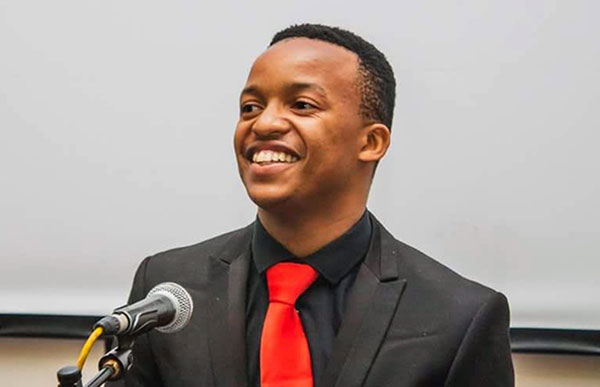
Samkelo Ntobeko Vukani Mngadi
As the country commemorates Freedom Day on 27 April, the seminar aimed at creating a platform to reflect on how far we have come as a people. The seminar offered nuggets of what leadership in contemporary South Africa should look like, and what can be gleaned from the past to make the free and socially just South Africa that Inkosi Luthuli fought and was prepared to die for.
A hybrid intellectual with organic intellectualism
To this end, Mngadi’s presentation focused on Luthuli’s dual identity and hybrid intellectualism. Drawing from Gramsci and Jared Ferrets’ works, Mngadi interrogated and grappled with Luthuli’s autobiography, and public speeches he delivered as both Chair of Natal, the President of the African National Congress (ANC) and President-General of the ANC.
Mngadi highlighted how, in his rendering, it makes sense to classify Luthuli as a hybrid intellectual by his embodiment of traditional intellectualism and his organic intellectualism. Mngadi went on to describe Luthuli’s dual identity as can be gleaned from the community where he came from. Luthuli was raised by African Christian converts who later became known as African Christians. They took on dual identities which were both accepting of their Christian faith and recognising themselves as Africans at the same time.
Mngadi went on to discuss how Luthuli rejected the missionaries’ attempts at re-creating Africans as Europeans. As a result, Luthuli maintained his African identity and, as an inkosi, continued to encourage his people to do so. Luthuli believed that South Africa would eventually develop its own culture, where no one culture dominates another. However, Luthuli was also quick to point out that a new culture would develop, comprising existing cultures that would inform the new one. He believed that cultures were not meant to be static, nor should they romanticise the past.
Luthuli was ahead of his time
Luthuli took a revolutionary step by admitting women to tribal courts. Although the people accepted the change without complaining or challenging the new norm, ingrained customs kept women on the outskirts of the discussion. Luthuli sought to extend freedom to women through upward social mobility. He sought for them to be liberated by improving their economic status and to see their social status improve by giving them a seat at the table.
Luthuli believed in empowering women to liberate themselves by actively participating in the traditional courts and discussions. Mngadi highlighted that this was a prophetic tactic wherein Luthuli envisioned a South Africa that creates safe spaces for women to participate and thrive.
As Chief of Amakholwa and President of the ANC, Luthuli believed in leadership being consultative and a collective decision-making process. His leadership was people-centred, and his political philosophy was always infused with his Christian faith. He understood the importance of how the progress of an individual in society should translate to the progress of the lives of those around them. He believed chiefs (traditional leadership) occupy a critical space in progressing society.
Relevance and lessons from Luthuli’s life and teachings
Reflecting on Luthuli’s influence on his own leadership style, Mngadi asserted: "During my time as President of the SRC, my Council could attest that I was very people-centred."
Mngadi went on to reflect on how Luthuli refused to be a state puppet. With this lesson in mind, Mngadi reflected that as a leader of the student representative council, he ensured that the line was drawn between being a student leader and not a member of the university or as a staff member.
Mngadi concluded by highlighting that the takeaway from the work he has done focusing on Luthuli is that "Luthuli calls us as citizens to continue pursuing social justice and advocating for the equality of all genders. As an intellectual, Luthuli understood that there was a world beyond the realities before them at that time and challenges that would come beyond our reality as we know it."
Finally, Mngadi reminded us that "South Africa's Freedom had to be obtained through nonviolent resistance for us to retain our humanity and gain the democratic and constitutional rights we know today".
As we commemorate Freedom Day, may we remember the injustices that continue to plague our society and draw from struggle heroes such as Inkosi Luthuli to challenge and push against unjust systems.
* By Dr Tinyiko Chauke and Prof Puleng Segalo, Chief Albert Luthuli Research Chair
Publish date: 2023-04-27 00:00:00.0


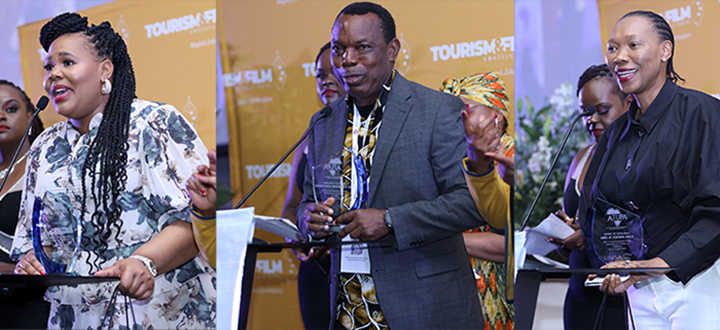 Unisa and ATUPA recognise researchers for ingenuity and innovation
Unisa and ATUPA recognise researchers for ingenuity and innovation
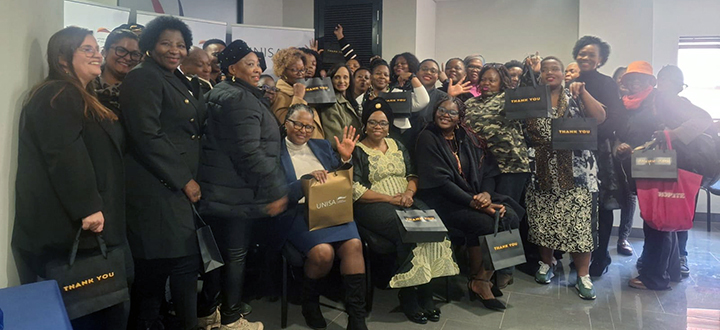 Recognising the unceasing resilience of women
Recognising the unceasing resilience of women
 Unisa and SHECASA promote institutional health and safety
Unisa and SHECASA promote institutional health and safety
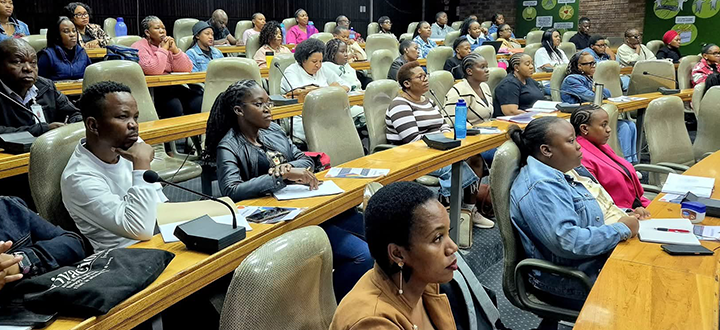 Effectual partnership to advance public health knowledge
Effectual partnership to advance public health knowledge
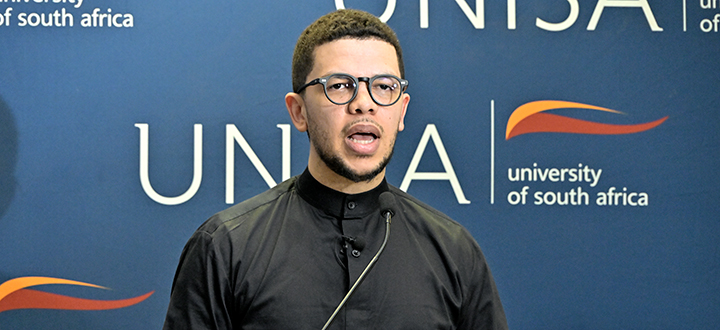 OR Tambo remembered as a radical democracy builder
OR Tambo remembered as a radical democracy builder